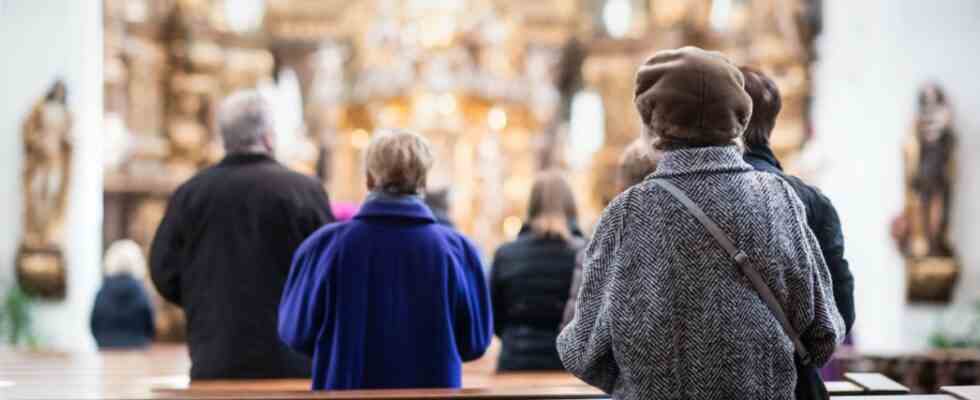Bavaria’s churches are going through difficult times, churchgoers stayed away not only because of their own crises, but also because of the corona virus. In the pandemic year 2021, fewer than a million people in Germany attended a Sunday service for the first time. Two years earlier there were twice as many.
Now there is another threat of a hard winter, in which the faithful may stay away, because the energy crisis could make it cold in the places of worship. More than two thirds of church buildings in Bavaria are heated with fossil fuels – and the greatest potential for savings is in heating. There are different strategies against the cold: covering the clammy pews with heated seat cushions, celebrating the service in the parish hall or, in the old fashioned way, simply putting on warm clothes.
Are you concerned that the cold churches will remain empty in winter? “I don’t think so. The parishioners know about the current energy situation and come anyway,” says Johannes Minkus, spokesman for the Bavarian Evangelical Church. Regional bishop Heinrich Bedford-Strohm sees it similarly: “Even if the parishioners celebrate a digitally transmitted service at home in the warm living room, it’s a valuable experience,” he says. Nevertheless, he is certain that many people will come to the church physically: “If you know in advance, you can prepare for sparingly heated rooms with warm clothing.”
The parish of Hofstetten near Eichstätt, for example, tested this during the pandemic. The community was advised to turn off the heating system because of the air turbulence. Church services were celebrated at eight degrees – people still came without complaining, said church nurse Jürgen Reindl Augsburg General. The parish will continue this course this winter.
Of course, it should be avoided that people freeze while praying, says Johannes Minkus. The evangelical church is currently preparing a letter of recommendation on all aspects of saving energy, “how evangelical Christians in Bavaria can also become role models in society with their buildings and their consumption”. Heating pads and upholstery heating are suggested to the communities in it.
“Better cold churches than cold hospitals”
In addition, well-heated community rooms as a so-called winter church should be an alternative to the historic church: “After Christmas until Easter, all services take place in the warm community hall.” However, that is a “double-edged sword”: Energy-saving and pandemic-compliant measures diverge. If distance regulations are required again, the church may be a better solution than the small community hall. “The regional church can only make recommendations. How the services will ultimately take place must be decided by the congregations depending on the premises and the incidence of infection.”
“A concrete concept for the winter will only be announced in Würzburg in the next few weeks,” says diocese spokeswoman Kerstin Schmeiser-Weiss. The same applies to churches as to municipal and state buildings: lights out. It is no longer lit at night unless it is necessary for city security.
The energy shortage is forcing many dioceses in Bavaria to take measures that have long been on the agenda in terms of climate protection. “We feel committed to preserving creation,” says Ulrich Bobinger, spokesman for the diocese of Augsburg. Even before the energy crisis, the diocese had set itself the goal of becoming climate-neutral by 2030. The diocese of Eichstätt also announced in July that it would “reduce room temperatures and mobility, optimize heating systems and switch lighting to LEDs” from now on. Now that the precarious situation is unmistakable, more decisive action and prioritization must be made: “Cold churches are better than cold hospitals,” said Bishop Gregor Maria Hanke of Eichstätt on Bavarian radio.
Public acceptance of holding church services in freezing temperatures is high. Almost half of Germans are in favor of not heating places of worship in winter, including significantly more supporters from the 60+ generation than young people. According to the survey by the social research institute INSA, almost every third German does not find it justifiable to save energy at this end, 27 percent did not comment. The question is to what proportion the actual churchgoers belong.
Bedford-Strohm classifies the crisis not only as such, but also as an opportunity for solidarity. It would be a “moral declaration of bankruptcy for this country” if the crisis were not managed in such a way that even the weak would get through this winter well. Churchgoers or not.

